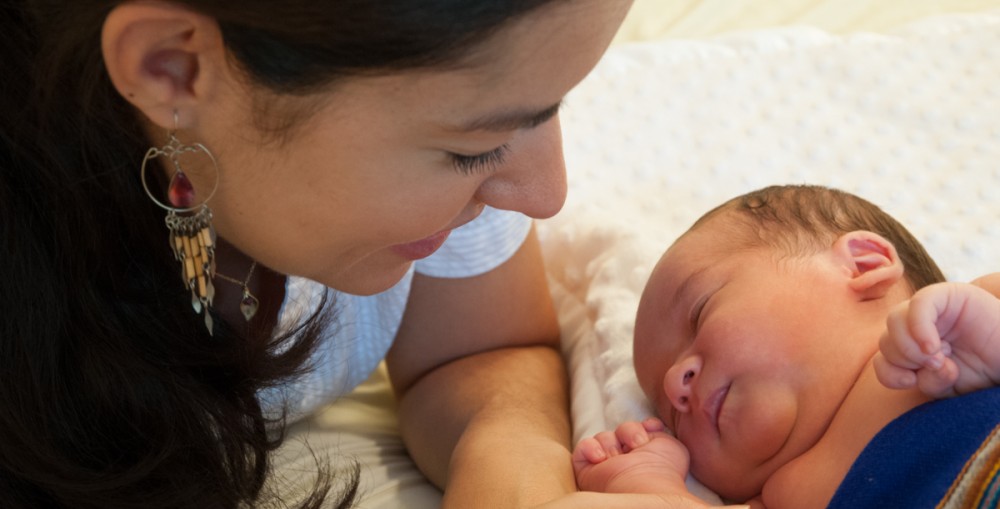I was recently listening to a segment on NPR that addressed the fact that many obstetricians are reluctant to speak to their patients about the potential danger of toxic substances in their environment. Though it is well documented that exposure to heavy metals and solvents can cause miscarriage, birth defects, and developmental problems, less than 20 percent of obstetricians ask their patients about their exposure to environmental hazards. They withheld the information because they felt that they would create fear and anxiety in their patients and as a result their patients would raise questions that the doctor’s felt they did not know how to answer.
Current research has shown that pesticides and air pollutants are linked to birth defects, but it is not clear whether the exposure people experience in a normal daily life is enough to cause these issues. For this reasons doctors feel that they cannot offer solutions to their patients on ways to prevent exposure and they would send their patients into unnecessary fear spiral. The Center for Environment Research and Children’s Health at Berkeley has recommendations for simple and inexpensive steps to help pregnant women reduce their exposure in their home, but doctors often neglect to tell their patients about these.
Is it ethical for doctors to withhold this information that affects the health of their baby?
I understand the concern that they may not be able to offer many solutions, but I feel that mothers have a right to know that these hazards exist. I don’t think it will send women into an unnecessary spiral of panic. At least informing mother’s of exposure risks from things they have control over such as cleaning products, food containers, or food products would allow the mothers to make safer choices instead of unknowingly exposing their babies to dangerous chemicals.
Few Doctors Warn Expectant Mothers About Environmental Hazards http://www.npr.org/blogs/health/2014/06/25/324940705/few-doctors-warn-expectant-mothers-about-environmental-toxins

Hi Brenna! This was definitely interesting to read about. I think it would be a difficult call to make the decision of what would cause more harm to a pregnancy – stress of the knowledge of the affects of environmental hazards versus the risks of the hazards themselves. However, if I were an obstetrician in that situation, I would probably err on the side of disclosing all the risks.
When it comes to pesticides, there are certainly ways to prevent exposure to those chemicals. Expecting mothers can make sure that they are not using those chemicals on their own lawns. Also, at least in my neighborhood, all lawns with pesticides on them have flags to mark the presence of chemicals in the grass. Knowing that these chemicals could affect their baby could help women to avoid these lawns.
I think this is an interesting topic to raise up about ethics in medicine over birth. Informed consent is the right of the patient to be told of the consequences resulting from treatment, including the risk benefits. However, this topic falls into a grey area. Technically, the mom isn’t receiving any sort of treatment so there isn’t any risk/benefit to explain. However, the doctor’s concern on not telling the mothers is a legitimate concern.
Let’s take a different example, similar to the example given. Say for instance, the pediatrician is recognizing signs of autism, let’s say the patient has delayed speech, for one of her patients, . However, the doctor is not sure and does not want to ruin the family dynamics by raising this concern. Should the doctor explain her concerns with the patient’s family? Or should she closely monitor the patient to have enough time to diagnosis the patient correctly? I have no correct answer to this situation. Personally, I would ask for the family to come back at an another appointment so that I can be more confident about my diagnosis before suggesting something that can have irreversible damage on the patient and the family. Suggesting autism could alter the dynamics in the family greatly.
With the risks of pesticides, it is really difficult to say the effects of these toxins for the infant and the mother during the pregnancy. We could never create a research project of testing these effects. Certainly, it can be hypothesized that if pesticides cause such adverse effects on adults, these effects are certainly heightened for infants. I would say more monitoring needs to be done on the mother and infant throughout the pregnancy. Suggesting the to the new mothers about the harms could unnecessarily heighten their stress levels (think about mothers with high blood pressure).